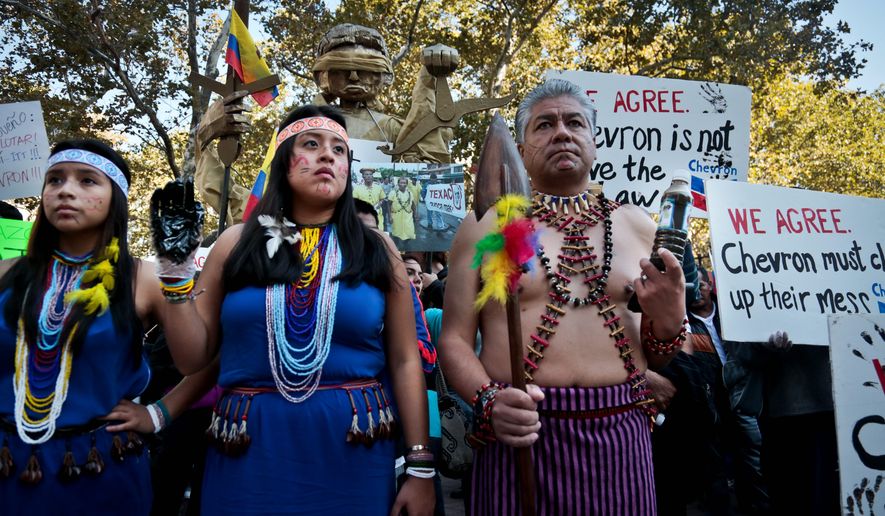The Supreme Court of Canada ruled Friday that a group of Ecuadorean plaintiffs can bring their yearlong legal suit with Chevron Corp. to an Ontario court in an attempt to collect a $9.5 billion settlement for oil pollution in the Amazon.
The ruling is the latest development in a 13-year legal battle over environmental damages in the rain forest where Texaco, now owned by Chevron, had oil operations.
A trial court in Ecuador originally awarded the villagers $17.2 billion, but an appeals court reduced the damages to $9.5 billion. It remains one of the largest judgments imposed by a court for environmental damage.
The Canadian court sided with the Ecuadoreans, saying the local courts were obliged to respect the decisions of their foreign counterparts.
“Canadian courts, like many others, have adopted a generous and liberal approach to the recognition and enforcement of foreign judgments,” the court ruled. “To recognize and enforce such a judgment, the only prerequisite is that the foreign court had a real and substantial connection with the litigants or with the subject matter of the dispute.”
Chevron has not yet paid the group as it continues to appeal the decision. A federal judge in New York last year found the American lawyer, Steven Donziger, who represented the Ecuadorians had used fraudulent means to achieve the settlement and concluded it was unenforceable.
“Today’s decision has no bearing on the legitimacy or enforceability of the fraudulent Ecuadorian judgment,” Morgan Crinklaw, a spokesman for Chevron, said Friday. “Instead, the Supreme Court of Canada has simply decided that the Ontario trial court has jurisdiction to entertain further proceedings in the action, including examination of several legal reasons why the effort to bring this fraudulent judgment to Canada should be stopped early in those proceedings. The facts remain, as Chevron Corp. established in the United States, that the Ecuadorian judgment is the product of fraud and other misconduct, and is therefore illegitimate and unenforceable.”
While the Ecuadoreans may now go back to a Canadian trial court with their collection efforts, the Supreme Court noted that they might not be successful.
“That the plaintiffs in this case may ultimately not succeed on the merits of their recognition and enforcement action, or that they may not succeed in successfully collecting from the judgment debtors against whom they bring this action, are not relevant factors,” the court ruled. “A party may bring an action for all kinds of strategic reasons, recognizing that their chances of collection on the judgment are minimal. It is not the role of the court to weed out cases on this basis.”
• Kellan Howell can be reached at khowell@washingtontimes.com.




Please read our comment policy before commenting.